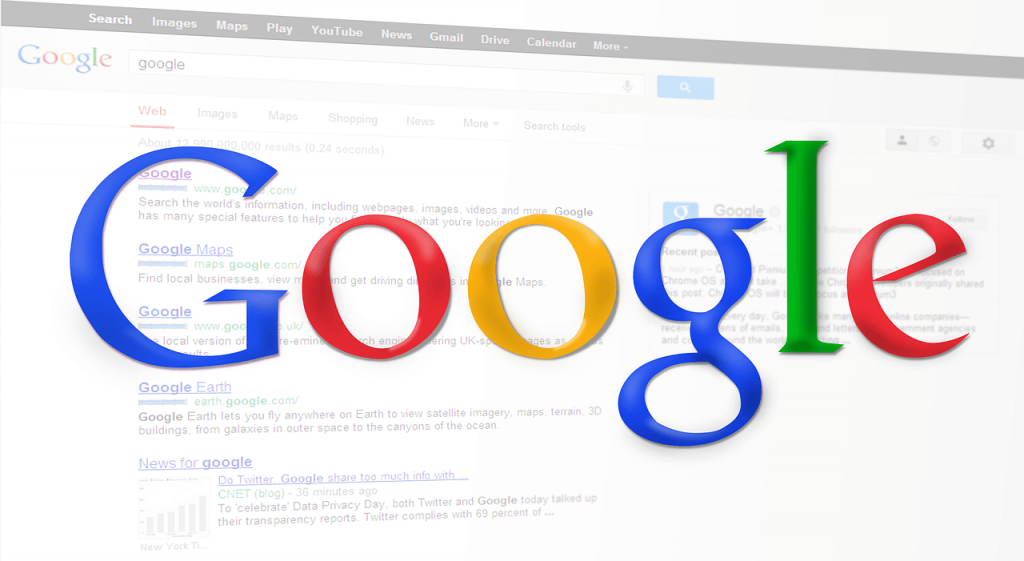
Google SEO: everything you need to know in 21 questions by the SEO experts of the SEO agency Canibuy ™.
- What is Search Engine Optimization (SEO)?
- Definition of SEO
- Why is SEO so important?
- How much does Google SEO cost?
- How does a search engine like Google work?
- How to optimize your site to properly reference it with Google?
- The search engine market is dominated by Google
- Why is measuring your traffic essential?
- What is the difference between SEO and paid?
- What is local SEO?
- What is the golden triangle?
- What is duplicate content?
- Why outsource the optimization of your SEO to an agency?
- Why do you need SEO if you are already at the top of search results?
- Why is the long tail so important in SEO?
- Multilingual site and international referencing
- How fast is Google SEO evolving?
- What are Google Panda, Penguin, Pigeon and Hummingbird?
- How do I know if my site is penalized by Google?
- SEO: work that grows in time
- SEO monitoring is essential for SEOs
Consult our SEO audit page to learn more about this service.
WHAT IS SEO (SEO)?
Definition
SEO, SEO (Search Engine Optimization) or SEO aims to improve your ranking in search results such as Google (but also Yahoo, Bing, etc.) to increase visitor traffic to your website.
Why is SEO so important?
75% of Internet users looking for a product or service start their purchase process on a search engine. Not having a web SEO strategy is like ignoring these users.
By optimizing your SEO, you generate more qualified traffic. You do not start your prospects unexpectedly because they are the ones who come directly to you.
Traffic generated by your Google SEO is a source of recurring revenue in the long term. Indeed, unlike a classic advertising campaign, SEO benefits persist long after the end of the SEO campaign.
Your competitors are already optimizing their SEO or will soon. Do not waste time!
HOW MUCH DOES IT COST TO LIST A WEBSITE?
See our explanation and detailed answer on the Google SEO Price page – how much does it cost to SEO a website?
HOW DOES A SEARCH ENGINE LIKE GOOGLE WORK?
To know how to reference your site, it is important to know how the main search engines work. Thus, for each search performed by a user, Google compares millions of web pages and ranks them according to their relevance with the keyword entered by the user.
Three preliminary steps are necessary for its operation:
- Google ‘crawl’ the web. Robots, also called ‘spiders’’ (which means ‘spiders’) crawl the web of linked links like a web and retrieve information on each page.
- Google indexes these web pages, that is, it keeps them in memory in its database.
- Google processes user requests according to its algorithm.
Google’s algorithm is regularly updated and has several hundred different relevance criteria. This algorithm is confidential but Google provides webmasters with a set of best practices to follow in order to promote indexing and better consideration of its website.
HOW TO OPTIMIZE YOUR SITE TO REFERENCE WELL WITH GOOGLE?
To optimize its web referencing, it is necessary to analyze and rework the “On-Page” and “Off-Page” elements of your website (non-exhaustive list).
The On-Page criteria:
- Choice of keywords
- Traffic and conversions
- Site architecture and internal link structure
- Structure of urls
- META Title Tags
- META Description Tags
- Editorial content and duplicate content
- Image ALT attribute
- Page loading speed
- Robots.txt
- Sitemap
- Mobile and tablet version
The Off-Page criteria:
- Netlinking and site popularity
- Anchor text of links (“anchor text”)
- Competitive benchmark
- Opportunities on vertical searches (Social, mobile, image & video, Google Map, Google Shopping, etc.).
- Google also provides webmasters with a “Search Engine Optimization” guide.
This guide will not reveal any secrets to automatically rank your site in first place. However, it will allow you to familiarize yourself with the basics of Google SEO.
THE SEARCH ENGINE MARKET IS DOMINATED BY GOOGLE
Google is the first search engine in the world but its supremacy is contested in some regions of the globe as in Russia with Yandex, with Baidu in China and to a lesser extent with Yahoo! and Bing in the States.
In Quebec, Google is the search engine that has the most market share far ahead of Yahoo! , Bing, Orange and Ask. It has a virtual monopoly and crushes competition.
WHY IS MEASURING YOUR TRAFFIC ESSENTIAL?
Using an audience measurement solution such as Google Analytics, AT Internet (Xiti) or Omniture is essential if you want to improve your SEO. Indeed, if you do not measure and quantify your audience, you will not be able to know if your efforts are rewarded or not.
Optimizing your SEO is not an end in itself but a lever to achieve your goals. This is why it is also essential to define the main objective of your site: generate sales, prospects, registrations, etc.
From there, you can start analyzing and tracking some key indicators such as:
- The overall traffic of the site
- The most visited pages of the site
- Pages receiving the most organic traffic
- Pages with the most conversions
- The conversion rate of your site
- Etc.
Based on this data, you can then measure the effectiveness of your SEO optimizations and adjust them over time.
WHAT IS THE DIFFERENCE BETWEEN NATURAL AND PAID SEARCH?
It is important to distinguish SEO from paid SEO (also called “sponsored links”, “SEA”, or “Google Adwords”).
Indeed, here is a Google search results page on which we distinguish the commercial links (orange box at the top and bottom of the page), natural results that are in the middle of the page.
Paid results are commercial links, they are displayed because advertisers pay Google for each click made on their ad. This is called paid search.
The natural results, also called “organic”, come from the Google index and are displayed because they are considered relevant by Google. We are talking about SEO.
SEO is independent of sponsored links. Spending a fortune on Google Adwords will not improve your ranking in natural results. However, the two strategies are complementary if you want to increase conversions on your site.
WHAT IS LOCAL REFERENCING?
More and more Internet users (especially on mobile) are looking for neighbourhood businesses on the web. Local SEO helps you appear on this type of search that are closely related to Google Map and Google My Business pages.
Local SEO differs from national SEO because Google is able to offer personalized and different results to users who type «Pizzeria» on their mobile.
Google will display in its results, on a Google Map, pizzerias near each of these users according to their geolocation.
WHAT IS THE GOLDEN TRIANGLE?
In SEO when we talk about “Golden Triangle”, this is the area where the eyes and clicks of Internet users in the search results are focused.
Conducted in 2005 by two US companies (Enquiro and Did-it) using Eyetools’ eye tracking technology, this study highlighted the importance of appearing at the top of the search results.
This image speaks for itself. The most viewed and clicked areas correspond to the first results. Most of the traffic is captured by the sites trusting the first positions of the golden triangle. Optimizing your SEO is therefore an essential prerequisite for a coherent webmarketing strategy.
WHAT IS DUPLICATE CONTENT?
Duplicate content is content that appears in several places on the web. If these contents are identical, it is difficult for search engines to choose the most relevant page.
In order to preserve the user experience, the engine will not make all these pages appear in its results and will only choose the one it considers to be the original version or the best.
The 3 major problems caused by duplicate content are that:
- Search engines don’t know which urls to index or de-index from their servers.
- Engines don’t know if they should redirect popularity on one or more pages.
The search engines do not know which pages/urls they should display in the search results ranking.
When duplicate content is present on a site, it affects its ranking in the engines as well as its traffic.
Why outsource the optimization of your SEO to an agency?
Optimizing your Google SEO requires time, tools and skills that you probably do not have internally. Assigning this mission internally to one of your employees in addition to his usual work usually leads to sloppy and inefficient work.
Are you familiar with the latest changes in SEO that occurred last week, yesterday or a few hours ago? What are the underlying trends in search engine evolution? Which sites will be affected? Not a day goes by without an update that could impact your site.
Because despite everything, it is not easy to know how to reference its site, the agency CanibuyTM offers its services to optimize the SEO of your website.
WHY DO YOU NEED SEO IF YOU ARE ALREADY AT THE TOP OF SEARCH RESULTS?
Almost all websites appear at the top of search results for at least one keyword.
Is this keyword searched by Internet users? Does it generate traffic? Does it have a satisfactory conversion rate? If that’s the case, good.
Is it the same for all important keywords in your domain? Probably not and that is why it is important to identify these opportunities.
What about your long tail? This set of keywords that generate 1 to 2 monthly visits to your site but that once added together represent more than 80% of your traffic.
Is your site optimized to get the most out of it?
WHY IS THE LONG TAIL SO IMPORTANT IN SEO?
The long tail is a concept widely used in the field of SEO for several reasons:
The long tail is the most important part of your keywords
It is easier to position yourself on these keywords because they are less competitive.
These keywords are more specific and their conversion rate is generally better.
Here is an illustration of the long tail in SEO.
MULTILINGUAL SITE AND INTERNATIONAL REFERENCING
If you want to open new markets internationally, your website will be a great tool to reach a wider audience. But preparing your website for multiple geographic or linguistic targeting is a challenge and requires careful work upstream. Indeed, some technical choices are strategic and can be prohibitive for the international referencing of your site thereafter.
Automatic translators are obviously to be avoided and having your content translated by a professional translator is essential to hope to rank well in local search engines such as Google.co.uk, Google.es, Google.de, Google.it…
Moreover, you can not ignore a referencing specialist in international SEO because a word-to-word translation of your keywords is not suitable. You should definitely do a study of keywords to target in English, Spanish or German, etc.
The choice of the structure of urls for which you will opt will also be decisive for your project. Depending on whether you are targeting a language or a country, several options are available:
Url options
Domain name associated with a country www.exemple.de
Subdomain with gTLD from.exemple.com
Subdirectory with gTLD www.exemple.com/de
URL settings www.exemple.com? loc=de
No solution is perfect, but depending on your business and the overall strategy of your company, you will have to turn to one option rather than another.
HOW QUICKLY DOES GOOGLE REFERENCING CHANGE?
Google changes its algorithm more than 500 times a year. While the vast majority of these updates are minimal, some of them have a significant impact on how the search engine displays these results pages.
Knowing the dates of these major updates of the algorithm, allows to explain the changes in the positions of your site as well as the evolutions of your natural traffic.
Each time, the SEO community names the most important updates. Among the most famous are “Florida” in 2003, “Big Daddy” in 2005, “Vince” and “Caffeine” in 2009, “May Day” in 2010, “Panda” in 2011, “Venice” in 2012, “Penguin” in 2012, “Colibri” in 2013, “Pigeon” in 2014, “Mobilegeddon”, “Quality Update” and “RankBrain” in 2015, “Pingouin 4.0” and “Adwords Shake-up” in 2016.
WHAT ARE GOOGLE PANDA, PENGUIN, PIGEON AND HUMMINGBIRD?
Google’s search engine algorithm is actually composed of a multitude of algorithms that combine to offer the best search results to Internet users.
Algorithm updates often have a targeted scope of action and the most important ones are entitled to their nickname. Among the most popular are:
Google Panda which takes into account the quality of the content of the pages of the site and which penalizes in particular the sites with poor quality or duplicated content
Google Penguin is Google’s other major algorithm. It applies to the quality of the netlinking of a website by sanctioning low quality links, purchased, artificial, and spam (from blog, forum, etc).
Google Pigeon (‘Pidgeon’) is dedicated to local search based on the geolocation of the Google Map.
Google Colibri (‘Hummingbird’) is an algorithm that aims to provide more relevant results based on the context, intent and interpretation of the user’s search.
HOW TO KNOW IF MY SITE IS PENALIZED BY GOOGLE?
The penalty can be on all pages of your site or focus only on some of them.
There are mainly two ways to realize that your site is penalized:
You notice a sudden and abnormal drop in your traffic and positions.
You have received a message from the Google Search Console notifying you of the penalty.
It is then necessary to determine whether the penalty is manual (that is, someone from Google analyzed your site and assigned it a penalty) or whether it is algorithmic (such as Google Panda, Penguin, etc.).
NATURAL REFERENCING: A WORK THAT FITS IN TIME
Google SEO is not an exact science and one of the biggest challenges when optimizing a site is the (relatively) long time between the improvements made and the first results.
A Google Adwords paid search campaign can get results within 24 hours while it sometimes takes several months for SEO. The interest of SEO is that its results are generally sustainable over time.
These two levers are nevertheless complementary because used together paid and natural referencing can ensure a positive return on investment in the short and long term.
SEO MONITORING IS A MUST FOR REFERRERS
Monitoring in SEO is essential. Everything is going very fast and we must regularly keep abreast of the latest news and innovations.
Here are our main sources of information: MOZ, Search Engine Land, Abondance, Search Engine Roundtable and Search Engine Watch.
NEED A QUOTE QUICKLY?
Contact us right away to get a quote or to discuss your project. Our offices are in Paris intra-muros but we work for our customers everywhere in France and abroad.
DISCOVER THE SKA AGENCY WITHOUT FURTHER DELAY!
75 seconds to discover our webmarketing agency and understand how our expertise can improve your SEO in search engines.





